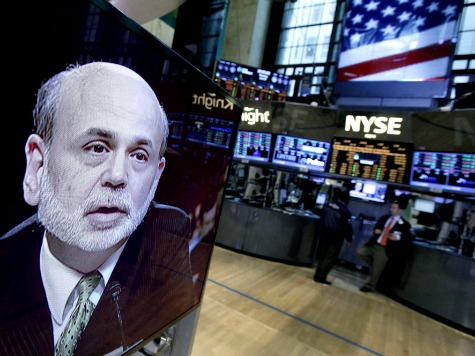
The apparent end of the standoff in Washington over raising the ceiling for the national debt provides all sorts of opportunities for commentators to blame one side or another. More than anything else, Americans are offended by the idea that Congress could somehow fail to agree to keep borrowing hundreds of billions of dollars per year, this to keep us all in the life style to which we are accustomed. The notion that anyone would suggest an end to this theft from future generations is seen as reckless.
My friends in the financial media warned ominously about the grave implication of disagreement between conservatives and liberals when it comes to the federal budget. The notion that Republicans, for example, might actually pressure the Democrats to reconsider their bad borrow and spend ways, is portrayed as irresponsible. But the fact of the matter is that our nation’s Founders anticipated just such confrontations. The Madisonian principle of “checks and balances” requires conflict.
Democracy in America is not supposed to be efficient, especially when the issues dividing the country are so fundamental. On the left, the Democrats are basically saying that it is acceptable to borrow hundreds of billions per year from our children and grandchildren to pay today’s bills. Notice that when liberals in the media were fretting about the extension of the debt ceiling, there is never any discussion of cutting spending or balancing the federal budget. The whole focus of American liberalism is selfishness, this under the guise of pretending to care about the poor and unfortunate.
Conservatives, on the other hand, angrily complain about deficits and new federal programs and mandates, but are singularly ineffective in stopping the expansion of the welfare state. When it comes down to really cutting back entitlements, the Republicans in the Senate are little better than their Democratic counterparts. The more conservative members of the House, at least, have been willing to go to the brink of national calamity in order to make the point that spending money we don’t have is unacceptable. But for the half the working age Americans who receive transfer payments rather than work, such policies are not popular.
The sad fact is that neither political tendency is willing to ask the American people to actually pay for the services and benefits that we think that we deserve. Instead, we use debt and easy money policy from the Federal Open Market Committee to keep the US economy afloat in a nominal sense. But in real terms, the zero interest rate policy of the FOMC is a tax on America’s most vulnerable citizens. Of course, neither Democrats nor Republicans will ever acknowledge that the Fed’s low rate policy and the inflation it represents is an invisible tax on all Americans.
The fight over the budget and debt ceiling is important because it illustrates a fundamental and growing dispute in American society over the direction of our government. Mark Grant of Southwest Securities told Bloomberg News earlier this week that “everybody” is to blame for the political fight over the budget.
“What everybody seems to forget is that people in the House are elected just like President Obama is elected. The real issue in my mind is the difference in social values. Democrats want to write checks and give a lot of poor people money. The Republicans do not want to write the checks because you are taking money from the middle class. And you have a social conflict that is really at the center of this issue.”
One must wonder, however, if the Republicans in Congress really care about the middle class given their acquiescence in the slow, steady erosion in real wages and income under the Fed’s zero rate policies. The same low interest rates that are robbing elderly Americans, investors and corporations of a positive return on their savings enables the US government to pretend that it does not face a very serious debt crisis. As and when interest rates return to something like normal levels, the question will not be raising the federal debt ceiling but raising taxes to service the burgeoning national debt.
At the end of the day, we really cannot blame members of Congress for failing to do the right thing on the federal budget, namely raising taxes to pay for all of the services and benefits that Americans believe that we deserve. By my reckoning, that would put individual federal tax rates well over 50% and kill any hope of economic growth. Instead we prefer to embrace a national delusion of zero interest rates and a steady, inexorable inflation in terms of consumer living costs that will ultimately bring us to the same unhappy result. More than big banks or even countries, never forget, Congress and all of us are the most egregious examples of “too big to fail.”

COMMENTS
Please let us know if you're having issues with commenting.